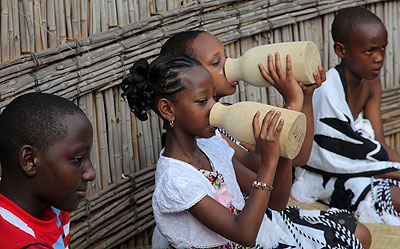Editor, Refer to the letter, “Umuganura to showcase national achievement” (The New Times, July 30).


Editor,
Refer to the letter, "Umuganura to showcase national achievement” (The New Times, July 30).
Allow me to share a few ideas. Umuganura is one of those national days with cultural implications unlike other holidays like Christmas, Assumption and Eid celebrated in Rwanda.
I think Umuganura should showcase national achievements as suggested in the article by the ministry in charge, but I also think it should be given more focus to celebrate what individuals have harvested or achieved throughout the year as was the culture a long time ago when our forefathers celebrated the first harvest after a long drought.
This means that the new focus would entail celebrating the day at community level as was the case before.
In order to do this, Umuganura should be made a public holiday so that people have ample time to enjoy the fruits of their sweat over the year and celebrate with friends and relatives as was the case.
I am not suggesting this just to advocate for a holiday, but I think some public holidays can be scrapped off and priority given to Umuganura given its importance.
In the perspective of the family, it would be a good opportunity for family members to set higher targets for output in order to ensure more celebrations in the next year.
This opportunity for family members to enjoy the fruits of their sweat will also improve the family’s environment and collaboration.
Again, celebrations for Umuganura resonate well with our country’s value of "self-reliance” and an opportune moment for the community members to celebrate and increase their collaboration on future joint works which could lead to greater harvest in the following years.
This conforms well to the performance contracts that we endevour to meet every year.
As times have changed, harvest can even connote to mean what families, institutions, and communities set out to achieve and Umuganura would serve as good opportunity to celebrate their attainment and also look at addressing the obstacles.
Such a day would contribute to building harmony amongst family members (both extended and nuclear), the community and wouldcontribute to the reduction of family breakdown and restoration of Rwandan traditional values.
My argument is that we should give weight to this day the same way Americans celebrate Thanksgiving Day because of the way both days relate to celebrating harvest and sharing with family members, friends and relatives.
Having done this, other activities can only contribute to making the day a livelier holiday with various entertainment activities for people to participate in.
Franklin Gakuba Murangira, Rwanda


